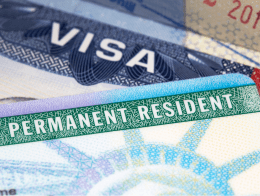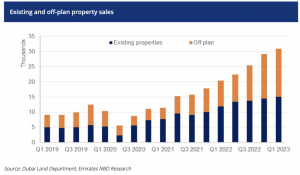
Have you ever wondered what retirement looks like for expats in the UAE? Unlike many countries with government-backed pension schemes, the UAE operates differently, relying on end-of-service benefits and private savings options. With no mandatory pension system for expatriates, securing long-term financial stability requires proactive planning and investment.
The UAE government has introduced new retirement schemes, including the Golden Pension Plan and Voluntary Alternative End-of-Service Benefits Scheme, offering expats structured savings opportunities. But how do these compare to traditional pensions? What options are available for those looking to retire in the UAE?
In this guide, we’ll explore the UAE pension scheme for expats, covering available benefits, alternative retirement plans, government policies, and essential steps to secure your financial future in the UAE.
Do Expats in the UAE Have Access to a Pension Scheme?

Expats in the UAE are not eligible for the mandatory national pension scheme, which is exclusively available to Emirati citizens. However, this does not mean expats have no retirement benefits. Instead of a state-funded pension, expat employees receive an end-of-service gratuity, which acts as a lump-sum payment upon leaving their job.
- Gratuity vs. Pension: Unlike a traditional pension, which provides continuous post-retirement income, gratuity is a one-time payment based on years of service and salary.
- Recent Developments: In response to the growing demand for retirement security among expats, the UAE has introduced new schemes, such as the Golden Pension Plan and Voluntary Alternative End-of-Service Benefits Scheme.
- Private and Employer-Sponsored Options: While there is no universal pension system for expats, some private companies offer retirement savings plans through financial institutions.
Despite the absence of a mandatory expat pension, multiple alternatives exist for securing long-term financial stability.
What Are the Current Retirement Benefits for Expats in the UAE?
While the UAE does not provide a government-funded pension for expats, it offers the end-of-service gratuity, which serves as a financial safety net upon retirement or job termination.
This benefit is legally mandated under UAE labor law and is calculated based on an employee’s years of service and last drawn salary.
- Gratuity Calculation: Employees with 1 to 5 years of service receive 21 days’ basic salary per year. Employees with more than 5 years of service receive 30 days’ basic salary per year. The total gratuity amount is capped at two years’ salary.
- New Retirement Schemes: To improve long-term financial security, the UAE has introduced voluntary pension schemes such as the Golden Pension Plan, allowing employees to invest their gratuity benefits for long-term growth.
- Challenges: While gratuity provides a lump-sum payout, it does not guarantee continuous retirement income, making additional private savings and investment plans essential for expats looking to retire in the UAE.
While the end-of-service gratuity provides a financial cushion, it is a one-time payment and may not be sufficient for long-term retirement needs.
Expats must explore additional savings plans, private pension schemes, and investment options to secure their future. With the introduction of voluntary pension programs and alternative retirement plans, expats now have more opportunities to build a stable post-retirement income in the UAE.
What Are the Alternative Pension Options for Expats in the UAE?

Since the UAE does not have a national pension scheme for expats, many expatriates opt for private retirement savings plans and investment options to secure their financial future. Some of the most viable alternatives include:
- Private Pension Plans: Many international banks and financial institutions in the UAE offer expat-focused pension plans, which allow individuals to contribute regularly and build a retirement fund over time.
- Employer-Sponsored Pension Schemes: Some multinational corporations operating in the UAE provide pension plans or retirement funds as part of their employee benefits package.
- Golden Pension Plan: This initiative allows expat workers to invest all or part of their gratuity into an interest-generating pension fund for long-term growth.
- National Bonds & Investment Schemes: Expats can invest in government-backed National Bonds, mutual funds, or real estate to create a sustainable retirement income.
Each option comes with different levels of risk and return, so expats must carefully choose a retirement plan based on their financial goals and long-term stability needs.
How Can Expats Secure Their Financial Future in the UAE?
With no state-funded pension for expatriates, securing financial stability in retirement requires proactive planning and investment. Expats can take several steps to ensure a comfortable and secure future in the UAE:
- Invest in Retirement Funds: Contributing to a private pension plan or the Golden Pension Scheme can help build a steady retirement income.
- Diversify Investments: Expats should explore various financial instruments, such as stocks, bonds, real estate, and National Bonds, to spread risk and generate multiple income streams.
- Maximize End-of-Service Gratuity: Instead of spending the lump sum, expats should reinvest their gratuity into long-term savings or investment funds for financial growth.
- Plan for Healthcare Costs: The UAE has a high standard of healthcare, but medical expenses can be costly. Expats should consider private health insurance and medical savings plans to cover future expenses.
- Consider Retirement Visa Options: Expats planning to retire in the UAE should explore retirement visa programs, which require a minimum income, savings, or property investments to maintain residency.
By combining strategic investments, savings plans, and retirement-focused schemes, expats can achieve long-term financial security and enjoy a stress-free retirement in the UAE.
What Are the UAE Government’s Plans for Expats’ Pensions?

The UAE government has taken progressive steps to enhance retirement security for expatriates. While there is no mandatory pension scheme for expats, several new initiatives and reforms have been introduced to encourage long-term financial planning.
- Golden Pension Scheme: This initiative allows private-sector employees to invest a portion or all of their gratuity into government-backed pension funds, helping them accumulate savings for retirement.
- Voluntary Alternative End-of-Service Benefits Scheme: Recently launched by the UAE Ministry of Human Resources and Emiratisation (MOHRE), this program enables employees to invest their gratuity benefits into diversified investment funds, creating a structured retirement savings plan.
- Potential Pension Reforms: While discussions continue, industry experts predict that the UAE may eventually introduce a comprehensive expat pension system to attract and retain international talent.
These developments indicate the UAE’s commitment to providing more structured retirement options for expatriates, ensuring financial stability beyond their working years.
How Does the UAE Pension System Compare to Other Countries?
The UAE’s retirement benefits structure differs significantly from traditional pension systems in countries like the UK, USA, and Europe. Here’s how they compare:
| Feature | UAE (Expats) | UK (Expats) | USA (Expats) | Europe (Expats) |
| State Pension | Not available | Available (if eligible) | Social Security (if eligible) | Pension schemes vary by country |
| Employer Pension | Not mandatory | Workplace pension available | 401(k) & IRA options | Employer-based schemes |
| End-of-Service Benefit | Lump-sum gratuity | No gratuity | No gratuity | No gratuity |
| Private Pension Options | Available via banks & financial institutions | Personal pension plans available | Private retirement accounts | Private & government-backed schemes |
| Retirement Visa | Available through investment | Available via UK schemes | Visa options for retirees | Residency options vary |
Unlike Western countries, which provide state-funded pensions, the UAE relies on gratuity payments and private savings options. While this offers greater flexibility, it also means expats must proactively plan for their retirement.
What Steps Should Expats Take for a Secure Retirement in the UAE?

Retiring in the UAE requires careful financial planning. Since there is no state-backed pension for expats, individuals must take proactive steps to ensure financial stability.
- Start Early with Private Pension Plans: Contributing to retirement savings accounts or investment-linked pension schemes can provide long-term security.
- Maximize End-of-Service Benefits: Instead of using gratuity as a short-term fund, expats should reinvest it into pension schemes or diversified investments.
- Invest in Property or National Bonds: Real estate investments and government-backed National Bonds offer stable returns and can help meet retirement visa requirements.
- Secure a Retirement Visa: Expats looking to retire in the UAE should meet visa eligibility criteria, such as maintaining a monthly income of AED 15,000 or having savings/property worth AED 1 million.
- Plan for Healthcare Costs: Comprehensive medical insurance is crucial, as healthcare expenses can be significant in retirement.
By following these steps, expats can build a financially secure future and continue enjoying the UAE’s tax-free lifestyle and world-class infrastructure well into retirement.
What Are the Key Challenges Expats Face When Planning for Retirement in the UAE?
While the UAE offers attractive financial opportunities, retiring as an expat comes with several challenges that require strategic planning.
- No Mandatory Pension Scheme: Unlike many Western countries, the UAE does not offer a state-backed pension for expatriates, meaning individuals must rely on gratuity, savings, and investments.
- Visa Dependency: Retirement in the UAE requires meeting the financial criteria for a retirement visa, which may not be feasible for everyone. Expats must either maintain adequate income, property investments, or savings to qualify.
- High Cost of Living: While the UAE has zero income tax, the cost of housing, healthcare, and daily expenses can be significant, making long-term financial planning essential.
- Limited Employer Pension Schemes: Unlike in Europe and the US, where employer-funded pensions are standard, most UAE employers only offer end-of-service gratuity, which may not be sufficient for long-term retirement.
- Currency & Investment Risks: Expats earning in UAE dirhams (AED) may face challenges when converting and investing funds internationally, leading to currency exchange risks.
Understanding these challenges allows expats to make informed financial decisions and build a sustainable retirement plan.
How Can Expats Transfer Their Pension Savings to the UAE?

Expats who have worked in other countries may want to transfer their existing pension funds to the UAE. While the process varies based on country-specific regulations, there are several ways to efficiently manage and transfer pension savings:
- International Pension Transfers: Some financial institutions allow expats to move their pensions into UAE-based private pension schemes or offshore investment plans.
- Qualifying Recognized Overseas Pension Schemes (QROPS): Expats from the UK can transfer their pension funds to a QROPS-approved plan, which offers tax-efficient retirement savings outside the UK.
- Offshore Pension Accounts: Many expats choose offshore banking solutions to consolidate their pension savings in tax-efficient jurisdictions like Jersey, the Isle of Man, or the Cayman Islands.
- Investment Diversification: Instead of direct transfers, some expats prefer investing their pension funds into UAE-based National Bonds, real estate, or mutual funds for stable growth.
- Tax Implications: Expats should consult with a financial advisor to understand the tax liabilities when withdrawing or transferring pension savings from their home country to the UAE.
By exploring these options, expats can maximize their pension benefits, ensuring a financially stable retirement in the UAE.
Conclusion
Retirement planning in the UAE requires a strategic approach, as there is no universal pension system for expats. Instead, individuals must rely on gratuity payments, private pension schemes, and investment options to build a stable financial future.
The UAE government has taken steps to enhance retirement security, offering new pension initiatives, investment funds, and retirement visas. However, expats must be proactive in diversifying their investments, managing gratuity payouts, and securing long-term residency.
By understanding the available retirement options, financial risks, and investment strategies, expats can create a sustainable retirement plan and continue enjoying the UAE’s world-class lifestyle, infrastructure, and tax-free benefits well beyond their working years.
FAQs
Can expats in the UAE contribute to a pension scheme?
No, expats are not included in the mandatory UAE pension system, but they can invest in private pension plans, employer-sponsored schemes, or the Golden Pension Plan for retirement savings.
Is the UAE planning to introduce a pension scheme for expats?
While no official plan exists, the government has introduced alternative retirement schemes, such as the Golden Pension Plan and Voluntary Alternative End-of-Service Benefits Scheme, to support expats.
What happens to my end-of-service gratuity if I leave the UAE?
Expats receive a lump-sum gratuity payment upon leaving their job, which can be transferred to overseas accounts, reinvested in UAE pension schemes, or used for retirement savings.
What are the key requirements for a UAE retirement visa?
Expats must be 55 years or older and meet one of these financial criteria: AED 15,000 monthly income, AED 1 million in savings, or AED 1 million in property investments.
Can expats transfer their international pensions to the UAE?
Yes, expats from countries like the UK can transfer their pensions into Qualifying Recognized Overseas Pension Schemes (QROPS) or offshore retirement plans based in the UAE.
How does the UAE pension system compare to other countries?
Unlike state-backed pensions in the UK, USA, or Europe, the UAE offers gratuity payments and private retirement plans, making self-managed savings crucial for expats.
What are the best retirement investment options in the UAE?
Expats can invest in National Bonds, mutual funds, real estate, private pension plans, or employer-backed savings schemes to build long-term financial security.


